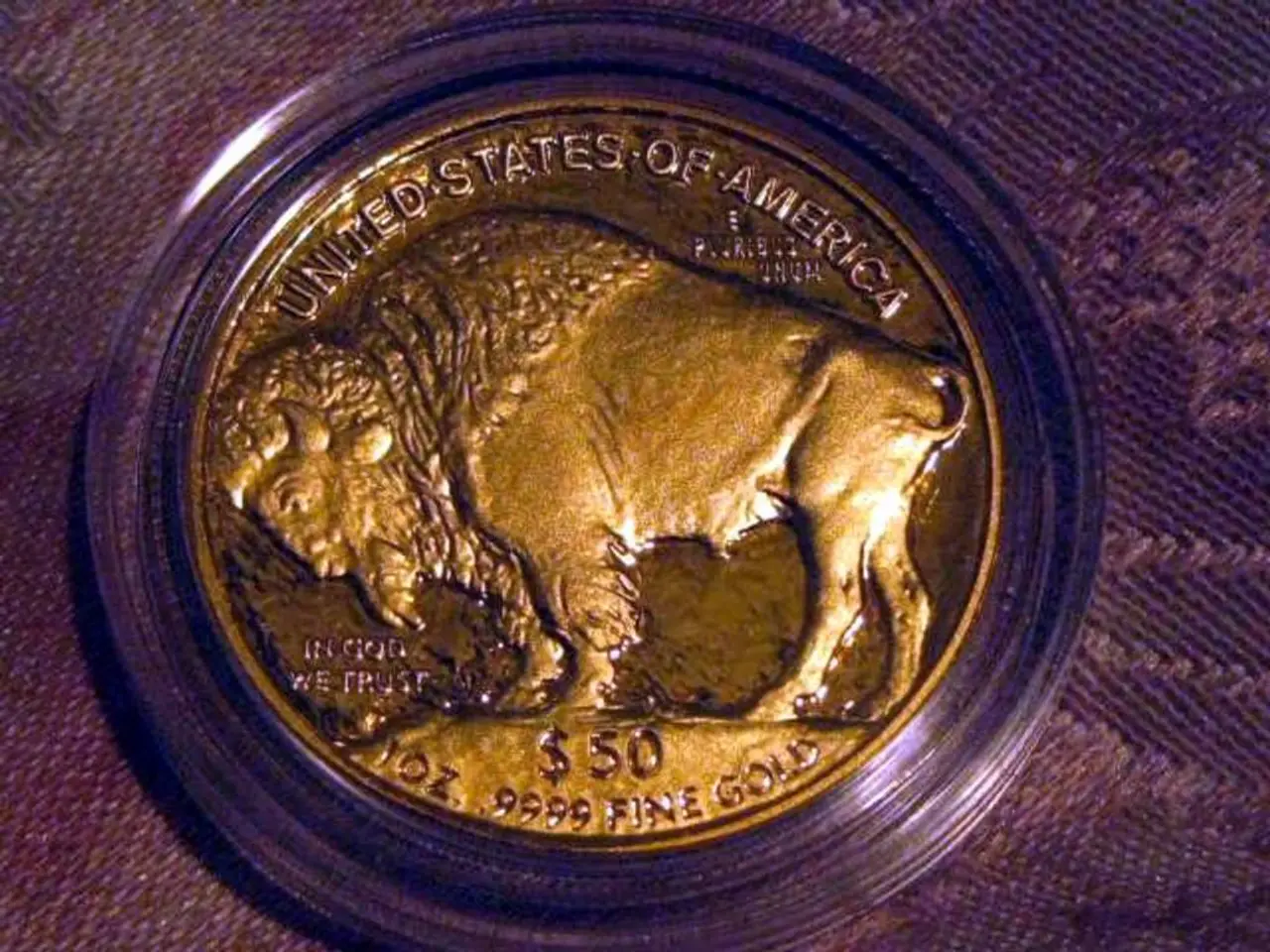Cryptocurrency upheaval is simmering in Washington and the financial district of Wall Street
In the ever-evolving world of finance, Bitcoin is making significant strides towards becoming a mainstream asset in the United States. The cryptocurrency's potential as a digital, decentralized, and limited-supply alternative to gold is gaining recognition, marking a turning point in its mass adoption.
Wall Street has strongly embraced Bitcoin, making it a key piece in corporate finance. Institutional heavyweights like MicroStrategy, Metaplanet, and GameStop have incorporated Bitcoin into their treasuries, demonstrating its appeal to large companies. The ease of transferring Bitcoin, its management through digital wallets, and the lower associated costs make it attractive to a wide range of investors.
The growing institutional adoption of Bitcoin reflects a deep change, consolidating it as a legitimate reserve asset for large companies. This shift is particularly evident in the U.S., where almost 50 million people now own Bitcoin, surpassing the number of gold holders in the country.
However, the question of converting a portion of the country's gold reserves into Bitcoin as a diversification strategy remains a subject of debate. While federal and state governments in the U.S. are moving towards this conversion, no clear data on the percentage of Americans supporting this specific move is currently available.
A recent social media chart claiming the U.S. will hold 40% of all Bitcoin by end-2025 has been criticized for lack of reliable data, indicating uncertainty regarding how much Bitcoin the U.S. actually holds or plans to hold relative to gold reserves.
Despite the lack of definitive data, Bitcoin is increasingly seen as a strategic asset in the United States. The U.S. federal government introduced the BITCOIN Act of 2025, aiming to acquire and hold Bitcoin strategically, treating it alongside gold as a reserve asset to diversify national reserves.
The U.S. Congress will hold the first Crypto Week from July 14 to 18, where key laws defining the legal framework for digital assets and stablecoins will be debated. This event underscores the growing political interest in cryptocurrencies and digital assets.
Bitcoin's volatility has decreased, even lower than that of major stock indices, making it more appealing as a financial asset. The crypto revolution in the U.S. is already tangible, with more and more companies and large investors holding Bitcoin and institutional support growing daily.
Political figures like Donald Trump have recognised the change, proposing that the U.S. Treasury consider maintaining a strategic reserve of Bitcoin. Bitcoin adoption has begun to show some political and gender divisions, with men more likely to recommend converting gold to Bitcoin and younger, liberal voters more inclined to support policies favourable to cryptocurrencies.
Troy Cross, a prominent figure in the crypto world, states, "Americans are increasingly open to integrating Bitcoin into their country's financial system." As the U.S. continues to navigate the complex landscape of digital assets, it is clear that Bitcoin's full integration into the U.S. financial system could be decisive, marking a turning point in its mass adoption.
Technology plays a crucial role in managing and investing in Bitcoin, as digital wallets and blockchain systems facilitate its transfer and storage. This, combined with its lower costs, makes Bitcoin a attractive investment option for other technologically-savvy investors.
The U.S. Congress's upcoming Crypto Week and the introduction of the BITCOIN Act of 2025 indicate a growing emphasis on technology-driven financial assets, further solidifying Bitcoin's position as a legitimate reserve asset alongside gold.




